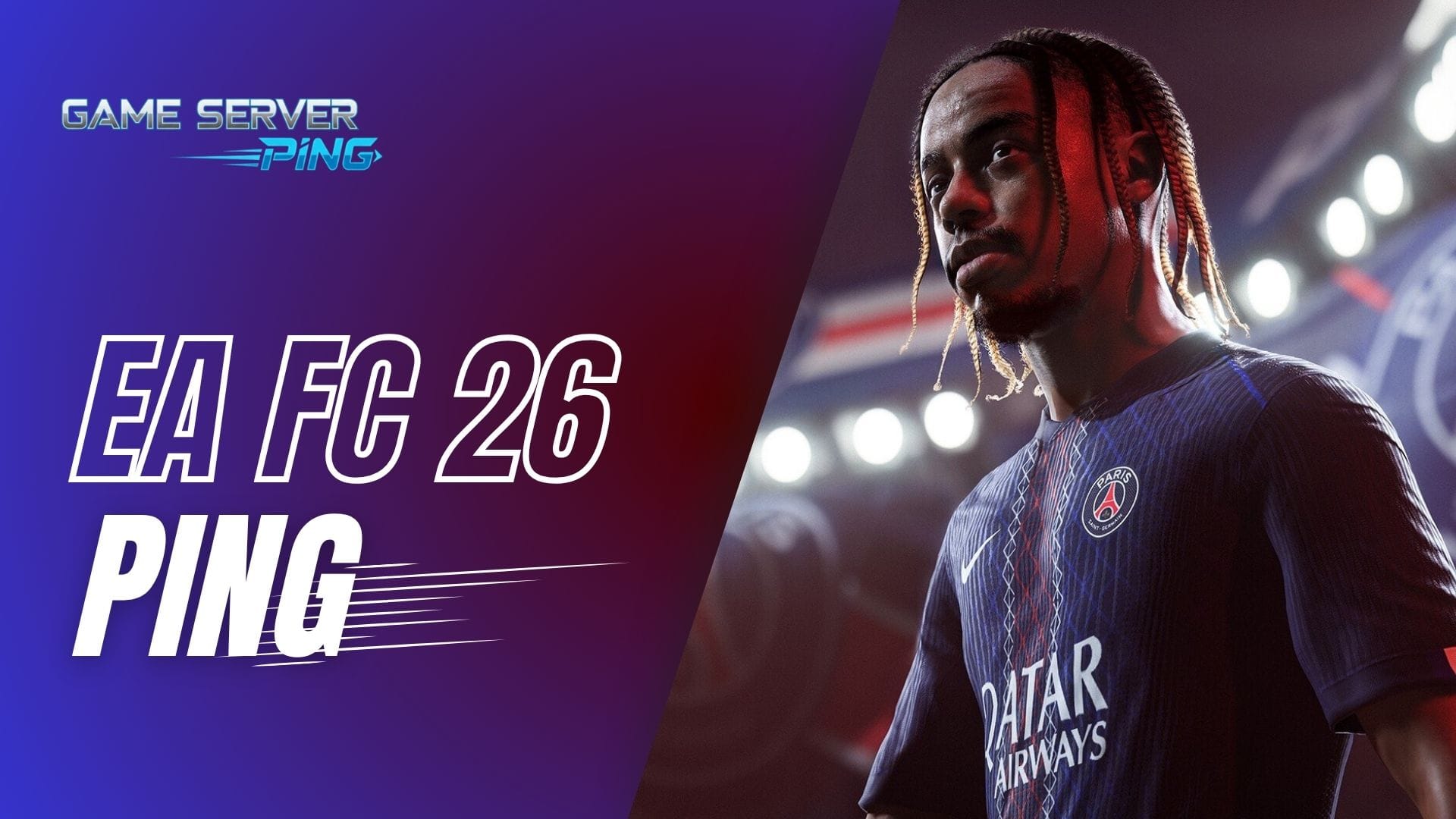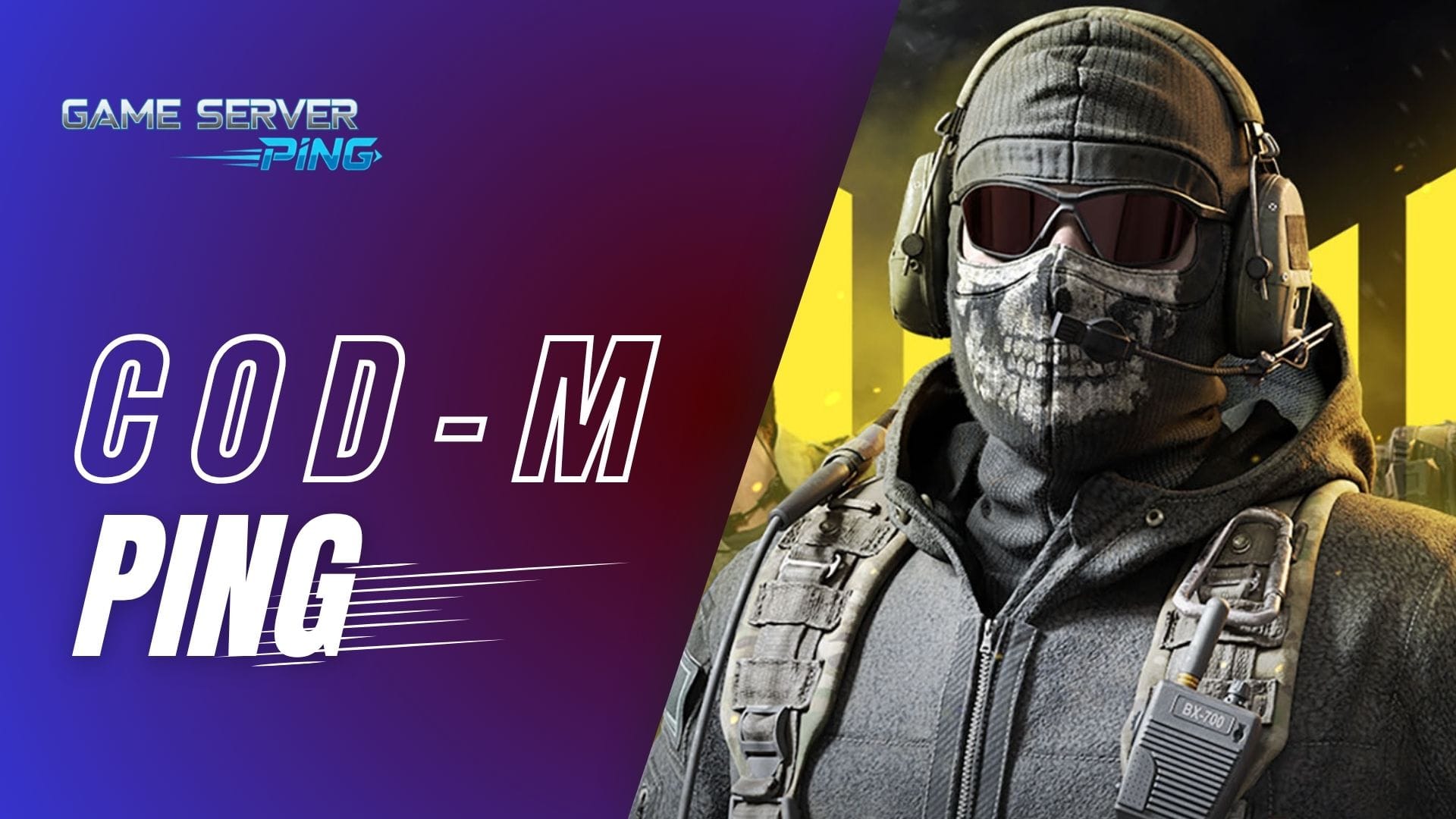Now Reading: Fifa FC 26 Ping Test Live – Check All 21 Server Regions
- 01
Fifa FC 26 Ping Test Live – Check All 21 Server Regions

Fifa FC 26 Ping Test Live – Check All 21 Server Regions
This Fifa FC 26 Ping Test is a dedicated tool that helps players check live server response times before jumping into online matches. Instead of relying on guesswork, it shows how quickly your connection interacts EA Sports FC 26 servers across multiple regions, including North America, Europe, Asia, South America, the Middle East, Africa, and Oceania. This makes it easier to find the most stable server for smoother gameplay on PC, Xbox, or PlayStation.
One of the strongest features of this ping checker is how it provides more than a single number. This tool runs repeated checks, calculates averages, and even highlights the best server automatically. With color-coded results, you can quickly see whether your current route to the servers is strong enough for competitive matches or if there might be stability issues causing lag spikes.
The servers tested here aren’t random—they are endpoints linked to FIFA and EA FC infrastructure. This ensures that the results you see are relevant to the same systems used in real matches. By comparing ping across multiple regions, players can understand not just where they’re currently best connected but also which servers might offer an advantage for online play.
Sometimes players notice that test results don’t fully match in-game experiences. This difference often comes down to how internet speed and latency work together during live sessions. We’ve covered this in detail in our guide on internet speed tests for online gaming, which explains why ping alone doesn’t always tell the full story. Checking both your latency and your overall connection speed gives a clearer view of why gameplay may feel smooth or sluggish.
It’s also important to know how much your Internet Service Provider (ISP) influences these results. Routing, stability, and regional infrastructure all play a role in how quickly your device communicates with EA servers. With our ISP tool, you can measure your provider’s performance and even compare it to others. When used alongside the Fifa 26 Ping Test, it helps you make informed choices about reducing lag and optimizing your connection.
Overall, this FC 26 Ping checker is more than just a utility—it’s a performance check that gives players actionable insights. By showing which server provides the best response, it helps reduce lag, prevent delays in crucial moments, and improve the overall FIFA and EA FC online experience.
Check Fifa FC 26 Ping Test Online
FC 26 FIFA Live Ping Test
Check your FC 26 FIFA Football online ping with this free live ping test for PC, Xbox, and PlayStation. Measure real-time server response across regions like North America, Europe, Asia, South America, Middle East, and Oceania to enjoy smoother gameplay and reduced lag.
 NA East (Virginia)
NA East (Virginia) NA East (Ohio)
NA East (Ohio) NA West (California)
NA West (California) NA West (Oregon)
NA West (Oregon) EU West (Dublin)
EU West (Dublin) EU West (London)
EU West (London) EU West (Paris)
EU West (Paris) EU Central (Frankfurt)
EU Central (Frankfurt) EU North (Stockholm)
EU North (Stockholm) Africa (Cape Town)
Africa (Cape Town) Middle East (Bahrain)
Middle East (Bahrain) Middle East (UAE)
Middle East (UAE) India (Mumbai)
India (Mumbai) Asia (Tokyo)
Asia (Tokyo) Asia (Seoul)
Asia (Seoul) Asia (Osaka)
Asia (Osaka) SEA (Singapore)
SEA (Singapore) Oceania (Sydney)
Oceania (Sydney) SEA (Jakarta)
SEA (Jakarta) South America (São Paulo)
South America (São Paulo) Canada (Montreal)
Canada (Montreal)
Best Ping for FC 26 Smooth Gameplay
For the most enjoyable experience in FC 26, your connection speed plays a huge role. A ping of 20–40 ms is often considered the sweet spot, where actions feel almost instant and delay is nearly unnoticeable. Competitive players aiming for precision in FUT Champions or Pro Clubs usually try to stay within this range.
That said, not everyone has access to ultra-low ping. A stable connection between 40–60 ms is still very good for smooth gameplay and is more than enough for most casual and semi-competitive matches. Once ping climbs above 80 ms, you may start to feel input delays, slower reactions, and occasional stutters. Anything consistently over 100 ms can make competitive play frustrating, especially when every split second counts.
It’s not just about the number, though. Consistency matters just as much. Even a 40 ms ping can feel worse if jitter is high, because unpredictable spikes lead to sudden lag moments. That’s why running a ping test before a session is useful—it helps you confirm both low ping and stable connection quality, giving you the confidence that your matches will run smoothly.
Check NBA 2k26 Ping Test Live
What this tool measures
This ping checker is designed to give players a real-time snapshot of how their connection performs with official EA servers. It doesn’t just fire off a single request—it measures the response multiple times to give more accurate results. Instead of focusing on technical networking terms, the tool simply shows how quickly your device communicates with different servers around the world. It also factors in connection stability by calculating consistency over repeated tests, which is what makes it more reliable than a one-off speed check.
Supported platforms: PC, Xbox, and PlayStation
One of the best things about this tool is that it’s platform-friendly. Whether you play EA Sports FC 26 on PC, Xbox, or PlayStation, the ping tester works the same way. Since all platforms connect to the same regional EA servers, the results you see apply universally. That means you don’t need a different test depending on your console or system—one check gives you an accurate idea of how your online matches will feel, no matter what you play on.
Quick look at how results are displayed in real time
When you start the test, the tool instantly begins pinging multiple servers across regions like North America, Europe, Asia, and Oceania. The results are displayed in a clear, color-coded format:
- Green for strong and stable connections
- Yellow or orange for average or slightly unstable routes
- Red for poor or high-latency connections
Alongside the ping time in milliseconds, the tool shows average values and stability indicators, helping you understand not just how fast the server responds but also how consistent it is. To make it even easier, the tool automatically highlights the best server for your location, so you know which one offers the smoothest online gameplay.
How the Tool Works (Simplified Explanation)
When you hit the “Start Ping Test” button, the tool immediately begins sending live requests to different EA FC 26 servers spread across key regions. Each request is measured in real time, so the results you see aren’t based on old data—they reflect your current connection at that exact moment.
Behind the scenes, the tool pings multiple FIFA/EA servers, covering areas like North America, Europe, Asia, South America, and Oceania. Once the checks are complete, the servers are automatically sorted based on performance, highlighting the one with the lowest and most stable response time. This helps you know instantly which server will give you smoother online matches.
It’s worth noting that while the tool provides a strong indicator of network performance, there can still be small differences compared to what you experience inside the game. Factors like temporary EA server load, ISP routing changes, or local network congestion can slightly alter in-game latency. That’s why the tool should be seen as a reliable guide, not an absolute guarantee.
What You See in the Results
Once the test finishes, the results are laid out in a clean and easy-to-read format so players can quickly understand how their connection is performing.
- Average ping values (ms): The tool shows your response time in milliseconds, giving a direct picture of how fast data travels between you and the server.
- Jitter measurement: Alongside ping, you’ll see how consistent your connection is. Lower jitter means fewer lag spikes and a smoother online experience.
- Color-coded indicators: Results are displayed with clear visual markers—green for excellent, yellow for decent, orange for borderline, and red for poor connections.
- Best server highlighted: The server with the most stable and lowest ping is automatically marked as the recommended choice for smoother gameplay.
- Unreachable servers flagged: If a particular region isn’t responding, it’s clearly labeled so you know which ones to avoid.
This format makes it easy for players to instantly spot whether their setup is ready for competitive play or if network issues might hold them back.
Benefits of Using the EA FC 26 Ping Tester
Using a ping tester before jumping into a match can make a real difference in how smooth your gameplay feels. Here’s why it’s worth checking:
- Identify the closest and fastest server: The tool quickly points out which server gives you the lowest ping, helping you connect where your gameplay will feel most responsive.
- Reduce lag during online matches: By knowing your connection quality beforehand, you can avoid unnecessary frustration caused by high latency or unstable routing.
- Choose the best server region: If you’re unsure which region offers the most reliable performance, the results guide you toward the most stable option for your location.
- Useful for every type of player: Whether you’re just playing casual friendlies or competing in FUT Champions, having smoother matches improves the experience across all modes.
It’s a simple step that can save you from a lot of lag-related issues once you’re in the middle of a game.
Benefits of Using the EA FC 26 Ping Tester
Identify the Closest and Fastest Server
One of the biggest advantages of using a ping tester is that it shows you which server is physically closest and most responsive to your connection. This helps ensure that your inputs are registered as quickly as possible during online play.
Reduce Lag in Online Matches
Lag can ruin an otherwise competitive match. By checking your connection ahead of time, you get a clear picture of whether your network is stable enough to handle fast-paced gameplay without delays or sudden spikes.
Decide the Best Server Region
Instead of guessing which region to connect with, the tool highlights the server that consistently performs best for you. This makes it easier to choose the region that delivers smooth, reliable gameplay without interruptions.
Helpful for All Types of Players
Whether you’re playing casually with friends or competing at a high level, knowing your ping and connection quality is valuable. Casual players get a seamless experience without annoying lag, while competitive players gain the edge of faster reaction times and more consistent matches.
EA FC 26 Ping Test vs. In-Game Network Settings
Why the Results May Differ from In-Game Ping
Players often notice that the numbers shown in a standalone ping test don’t always match what appears in the in-game network settings. This difference comes from how each system measures latency. A dedicated test tool focuses on direct communication with EA’s regional servers, while the game itself also factors in live match conditions, opponent connections, and additional server-side processes.
The Role of ISP, Routing, and Local Network
Your internet service provider, the routing path your data takes, and even small issues on your home network can all influence results. For example, an ISP might route traffic through a longer path, slightly increasing latency. Similarly, Wi-Fi interference or background downloads can add spikes that won’t always appear in a quick in-game measurement.
Why External Testing Is Still Valuable
Even with these differences, external testing provides real value. It gives you a clearer baseline of your connection strength before entering a match, helping you understand which regions and servers are most stable for you. While the in-game reading reflects live conditions, running a separate ping test adds an extra layer of insight—allowing you to troubleshoot, compare results, and make smarter decisions about which server to play on for the best experience.
Common Use Cases for the Tool
Players Troubleshooting Lag Issues
One of the most common reasons gamers turn to this tool is to figure out why FIFA or EA FC matches feel laggy. By running a quick test, players can see whether the problem is on their end—like unstable jitter or high ping—or if a particular server region is underperforming. This makes it much easier to pinpoint issues before blaming the game itself.
Esports Players Checking Tournament Stability
For competitive players, every millisecond matters. Esports competitors often use ping testing before major tournaments or qualifying rounds to make sure they’re connected to the most stable server. This helps minimize unexpected lag spikes that could cost them a match at the highest level.
Gamers Comparing Multiple Regions
Sometimes, connecting to a different region provides better performance than sticking with the default one. Many gamers use the tool to compare servers across Europe, North America, Asia, or South America and then choose the one offering the smoothest, most consistent gameplay. This flexibility can be especially useful for players who travel or live in areas with overlapping server coverage.
Conclusion
The EA Sports FC 26 ping test has become an essential companion for FIFA players who want to avoid unnecessary lag and make sure their connection is as smooth as possible. By running a quick check, you get a clear view of which servers are performing best for you, helping to eliminate guesswork and reduce frustration during matches.
Regularly checking server performance isn’t just useful for troubleshooting—it’s also smart preparation. Whether you’re jumping into a quick friendly or gearing up for a FUT Champions run, knowing your connection quality ahead of time can give you the edge you need. Many competitive players make it a routine step before big matches, ensuring they’re not caught off guard by sudden spikes or unstable servers.
What’s even better is that this approach isn’t limited to FIFA alone. Gamers use similar tools to test connections for other titles too, like Valorant, Fortnite, League of Legends, and even for checking GTA V latency. This makes the process of optimizing your network performance universal across competitive online games.
In the end, running a quick ping test before playing is a simple step that can make your matches more enjoyable and your gameplay more competitive. It’s a small habit that pays off with smoother sessions, fewer interruptions, and a better overall experience.
What is a good ping for EA FC 26’s online matches?
A ping under ~ 60 ms is generally considered very good and should feel smooth for most players. Anything between 60–100 ms is acceptable for casual play, while values above that may start showing noticeable delays. (Note: EA’s network quality reports also use ping, jitter, and packet loss as metrics to rate connection health.)
Why does my in-game latency differ from what the ping test shows?
n-game latency includes additional factors beyond basic server response times—such as matchmaking overhead, match server load, data synchronization between players, and internal game processing. The external ping test isolates just the network communication, offering a baseline. Differences in ISP routing, server load, or local network congestion can create discrepancies
Can a ping test detect network or ISP routing issues?
Yes. If the ping result is unusually high or shows large jitter spikes for certain servers, it may indicate that your ISP’s routing path to those destinations is inefficient or congested. In some cases, a specific node or hop on the route may be causing delays. Using the ping test across multiple server regions can help you spot these anomalies.
What if some servers show “unreachable” in the test?
When a server is labeled “unreachable,” it means the test could not get a valid response (e.g., timeout or no response). This may be due to server maintenance, regional blocking, firewall restrictions, or temporary outages. It’s best to rely on the reachable servers with stable low ping for gameplay.
How often should I run the ping test?
It’s good practice to test just before competitive matches, especially during peak hours or tournaments. Running it periodically allows you to notice performance shifts—such as ISP congestion or changes in routing—and adjust your server selection accordingly. Over time, this helps you maintain smoother, more predictable gameplay.











